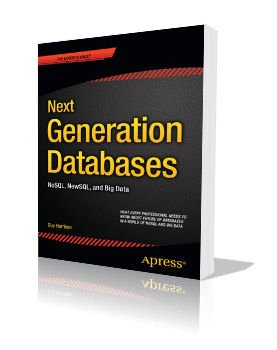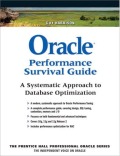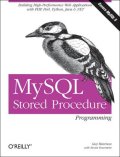Using GET DIAGNOSTICS in MySQL 5.6
 Friday, July 5, 2013 at 4:15PM
Friday, July 5, 2013 at 4:15PM When Steven and I wrote MySQL Stored Procedure programming our biggest reservation about the new stored procedure language was the lack of support for proper error handling. The lack of the SIGNAL and RESIGNAL clauses prevented a programmer from raising an error that could be propagated throughout a call stack properly, and the lack of a general purpose exception handler which could examine error codes at run time led to awkward exception handling code at best, and poorly implemented error handling at worst.
In 5.4 MySQL implemented the SIGNAL and RESIGNAL clauses (see http://guyharrison.squarespace.com/blog/2009/7/13/signal-and-resignal-in-mysql-54-and-60.html), which corrected half of the problem. Now finally, MySQL 5.6 implements the ANSI GET DIAGNOSTICS clause and we can write a general catch-all exception handler.
Here’s an example:
The exception handler is on lines 10-27. It catches any SQL exception, then uses the GET DIAGNOSTICS clause to fetch the SQLstate, MySQL error code and messages to local variables. We then decide what to do for anticipated errors – duplicate or badly formed product codes and SIGNAL a more more meaningful application error. Unexpected errors are RESIGNALed on line 24.
This is a great step forward for MySQL stored procedures – the lack of a means to programmatically examine error codes made proper error handling difficult or impossible. This is a major step forward in maturity.
Thanks to Ernst Bonat of www.evisualwww.com for helping me work through the usage of GET DIAGNOSTICS.
 mysql
mysql 


Reader Comments (1)
Very nice! So let's get cracking on the next edition of the book!